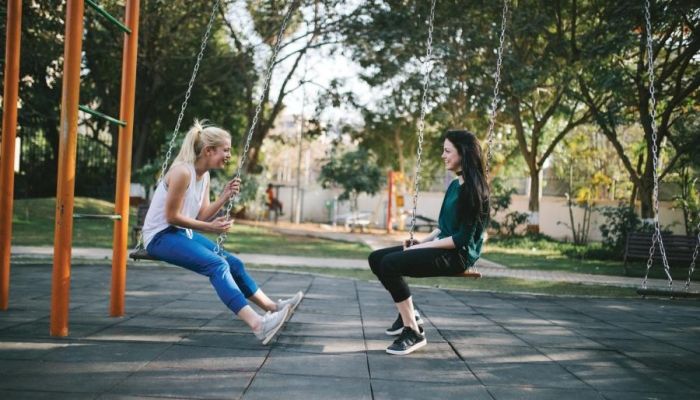A ray of life in the darkness
28 September 2020

It's as simple as being there for someone
Words Bryce Davies
When I was a child, I was quite fearful about being in the dark and alone in the middle of the night. I imagined evil forces lurking under the bed or in the wardrobe. I always wanted the light on if I needed to move about and was quite genuinely afraid of two irrational, but very powerful, ideas in my young mind.
Firstly, when I was about 11, I snuck into an M-rated movie with a mate and watched Jaws. This was a bit too much for my urban, land-based experience of the world to absorb, and I became afraid of anything to do with water. I was afraid of swimming pools and felt like a shark was always after me. I would even check the toilet!
My most intense fear, of course, was the ocean, and I was afraid for years – even into my 20s. I preferred to stay in the shallows, as I imagined a shark attack waiting at every turn.
My other intense fear came from watching the supernatural horror movie Poltergeist in 1982 when I was 18. In this movie, the guy would always wake up at 3.14am, start wandering about the creepy house and discover his little daughter in front the TV screen, communicating through the static with the evil poltergeist. It never ended well. From then on, if I woke up at 3.14am or even near this time, I would get the creeps and have to deal with my fears.
I guess we all have scary experiences that are hard to accommodate in our minds. Many are not just fears of the imagination, like the ones I have described, but very real life experiences that were, in fact, traumatic. The feelings from these experiences can be triggered in ways that can bring the fear back in random and disturbing ways.
A big part of any recovery journey these days is a concept called ‘trauma-informed care’. It invites people to consider deeply the impact past trauma has had on a person and to avoid simplistic responses to how people behave and respond in the here and now.
I am no psychologist, and if you have experienced trauma, professional help is obviously a great idea. It seems to me, though, that like so many other challenges we face, it is often helpful to have friends we can trust who will not judge us but rather offer us what the professionals call ‘unconditional positive regard’.
This does not mean we need to sit down and discuss the deep meaning of life or try to make sense of complex behaviours. What it does mean is that we continue to find ways to be in community with people who are struggling, and to help them feel safe. Check in with a phone call or send a text. (In COVID- 19 safe ways) maybe share a meal or go for a walk. Go to the movies and catch up for coffee. Basic acceptance and friendship are so important for healthy wellbeing.
Let’s do what we can to make sure our friends don’t have to add loneliness to the problems they are facing.
In the Bible it says in 1 John chapter 4, verse 18, “Perfect love drives out fear”, so it seems to me we have a role to play as we team up with God to spread the love and maybe calm some of the fear.
The love of God is not just a fuzzy sentiment; this love needs our hands and feet as active partners.
We cannot provide perfect love and often what we have to offer seems inadequate, but we may be able to offer a reminder that it is real.
You never know, you might be the little ray of light and hope that breaks into the darkness, just when someone needs it most.
Major Bryce Davies is a Salvation Army officer (pastor) in Sydney.
